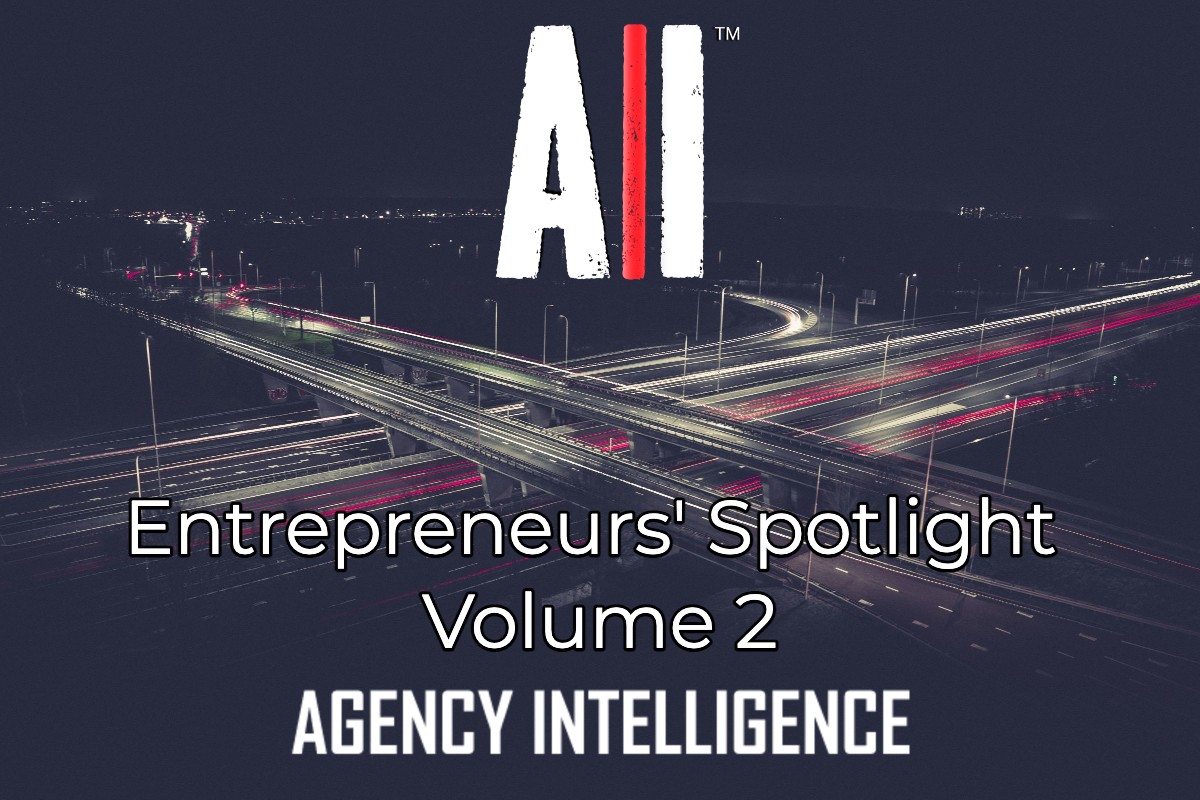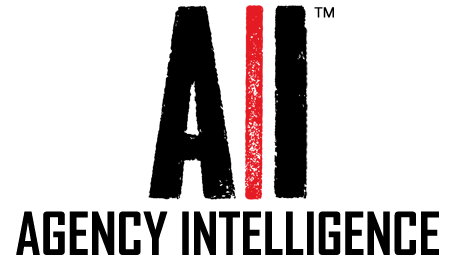Where the previous Entrepreneurs' Spotlight focused on how to pivot during a massive global economic shift, this edition focuses on how to stay competitive. Specifically, how to be scalable without sacrificing customer service.

Here, these star entrepreneurs take you behind the scenes on what it takes to continue being your customers' choice:
Business Coaching
1—Dana Davis (www.DanaDavis.tv)
Q: What was the biggest barrier to scaling your business? Was it time, money or something else?
A: Honestly, the biggest barrier to scaling my business was getting over my own imposter syndrome. I was in my own way. Even though I had the talent, I knew I had the right products and services – I really had to believe and know I can compete with the big dogs [giggles] and compete on a different level, and really, living my truth about my career.
That's my social/emotional piece to overcome, if I could say it in that way.
The other barrier at one point was capital: being able to gain the money to do the things that I wanted to do. Sometimes my dreams were so big that I didn't know how to scale it down to digestible pieces to get started.
It’s like looking at the mountain and figuring out how to get to the top, instead of just climbing one little step or level at a time. That was the biggest challenge for me: understanding exactly what I could do, and then once I knew I could, having the means to get it done.
Q: That pretty much answered my next question. How you overcome those challenges.
A: I started literally with self reflection and understanding what my barriers were. Once I understood what those barriers were, I identified them, I could put the work in. Start to problem-solve. So that was really it for me.
I'm saying, “okay, this is who you are, you're able to do this. So let's go ahead with it! What's your first step? Not necessarily how we're gonna get to the end result–but right now, we need to start with the first step.”
The first step was securing some coin [giggles] for the next step, which at the time was opening up my school.
Q: Across your most successful employees, partners or contractors, what's one common attribute you find?
A: For me, it is innovation. Being able to take initiative and be innovative are two things I always look for in anyone that I'm going to be partnering with.
What I always looked for in my center – especially in a facilitator, office staff/ manager – was for someone to be innovative and creative. When I had a facilitator – yes, I may have some things to add value, but I really wanted them to come and contribute some great ideas to what we were doing.
When I'm looking at vendors and I'm talking to people, I want to talk to the subject expert, who could teach me a little something along the process.
That’s key. I don't want to be the smartest person in the room.
Q: Do you create and use standard operating procedures?
A: Believe it or not, I don't have any formal pieces put together right now! When I had the center, there was an outline of how our day to day would go when it comes to opening and closing the school. There was an outline of what expectations I had from my facilitators, when it came to tracking people in our training and knowing their results. I had a 4-way data tracking system for metrics to see the success of the program. In a way that could be SOPs. But it wasn't actually written out as a SOP! [giggles]
Q: What's your client's greatest success?
A: Their greatest success is actually one of my contributions to myself: their ability to get over that hump, whatever it may be that's kept them from getting to the next step.
A lot of the time, I focus my training and coaching around deep-diving into who you are and why are you still in that particular area? Why are you still having these types of problems? What's keeping you from moving to the next step? The greatest success is being able to identify that and then do something with it.
I just received a text message today: “Hey Dana! Just checking in. I thought about you, I'm getting ready to close my biggest sale in the history of my company – and it's because of what you taught me.”
Those moments right there are huge. And that particular young lady literally had a huge barrier that was in her way. We were able to move that out of the way, how she markets herself and confident about how she’s putting her pricing together.
We moved that out as something for her to focus on and get out of that fear factor. And because of it, she was successful.
Those are some of the greatest success stories. My goal is to get people to their next level, whatever that may be, whatever it looks like, and figure out why, and give you some skill sets to get there.
I had someone else who struggled to verbalize what she did. She couldn't say it! It would take her forever to talk about her. And now she can say it all in just a few sentences.
When I was having a coaching session with her, she was at an event. She didn't want to cancel it, so she did it at the event. I said: “okay, you're gonna do your elevator pitch very quickly.” She did it, and when she finished, someone came up and asked for her business card and he was interested in being a vendor at her supermarket.
So that is a success story to me. She got past that fear of talking in public about her business and was able to sign somebody up as a potential vendor for herself – in the moment.
Things like that are great success stories. It's not about the monetizing as much as it is the experience. Because once you have those experiences, NOW you're ready for the next step. Now you're hungry for what's to come. That's how I look at it.
Accounting
2—Angela Sticca Snyder (Taxanista)
Q: What was the biggest barrier to scaling your business: time, money or something else?
A: It’s not time or money, it’s something else. It’s finding appropriate, dedicated and educated staff.
Q: How did you overcome that?
A: I'm still dealing with it! [giggles]
I have started the personality and aptitude tests, because you know you just need somebody, and it all sounds wonderful, and they sell you with what they’re saying. But if you can give them some type of personality and aptitude test – you can determine whether we are fit to work together. So that's what I started doing with my higher end people, and it has really helped.
Q: Across your most successful employees, partners or contractors, what's one common attribute you find?
A: They’re more focused on the outcome and the experience for the client, versus the “gimme-gimme-gimmes,” meaning “How much do you pay for overtime?” “How much is the vacation time?” “What are your benefits?” It’s truly when somebody cares and is conscientious about the client’s experience – that's what's most important.
Q: Do you create and use standard operating procedures in your business?
A: Do we create them? Yes. Do we use them? We should… But we're not large enough to have one person that stands and watches over the rest.
Q: When you get to use SOPs, how do you effectively use them?
A: It’s helpful when I’ve got somebody new, or somebody that’s been there for a while but there’s a new task for them. We have what we call the admin binder. I ask: “Did you look at the admin binder? Did you look at the instructions?”
If the answer is no – “OK, go look at that first.” And if you still have more questions, then ask.
Q: What is the greatest success of your clients?
A: I have a client who started with me when they first started in business, so they were making nothing. I mean what role is he playing and everything was audit ready so when they were going to sell their business for $8-9 million.
Q: What role did you play in it?
A: I made sure they were compliant, impeccable and audit ready. And when they were ready to sell, the buyer was very happy with what and how we provided it.
Q: Love it, love it. Nothing beats good customer service.
A: Honestly that's the key. They tried to do it themselves. They found me through a referral source, I think in 2016. We worked with them and mentored them. We don’t just reconcile your docs, we want to know what your goal is, your plan. Where are you going? Are you looking to sell your business, bring partners, create a job for yourself? Once we know what the client wants, then we can gear what you’re doing for them around that.
That’s awesome.
Medical
3—Dr. Sean McCaffrey (McCaffrey Health Center, Springfield, Illinois)
Q: What was the biggest barrier to scaling your business: time, money or something else? Essentially growing it, making it more successful, attracting more patients?
A: My own self is my biggest barrier and still is. I have a really high standard for what I expect to see with the people who entrust their health to me, and if I can't achieve that standard, I have a hard time seeing them. And it is a part of my greatest barrier that I have had. It’s my own knowledge, and lack thereof, constant quest for hunting for more.
Q: How do you plan to overcome that barrier?
A: Learn! [giggles] I study daily at least 2 hours a day and every day. For over the past 20 years. Relearning, learning again, looking at things differently, hunting for things I don't know the answers to, trying to fill in gaps. I have come up with a little bit of a model that I follow when I learn.
I kind of follow the idea “there is only one cause of disease and that is stress”. I created a triangle, so patients can easily understand, and called it “MEN”.
I go through it and I take each letter: the M is mechanical, or my grandfather called accidents and traumas, the E is emotional, energetic imbalances and then the N is nutritional, chemical or as my grandfather said poisons and toxins. And I just go around that triangle; where am I weakest at right now in my career if it's mechanical. Then we’ll dig further into that side, in a musculoskeletal one. Or if my emotional side is weak, then I’ll start digging into that.
I study Jung, Adler and Freud and others, and try to close the gap there. In nutritional it’s the same way. It just never stops. Because as one gets stronger, it inherently makes another one weaker. I have been doing it for nearly 23 years.
Q: Across your most successful employees or contractors what's 1 common attribute that you find?
A: In my line of work, the people who tend to care the most for others for the mission that you're on, what you're trying to accomplish. You really truly want to interact with people on a day-to-day basis and they seem to do the best.
Q: Do you create and use standard operating procedures in your office?
A: I do. It’s really more of a time issue, because time is the one thing I can't make more of, and because I cannot, I try to maximize my time. I’m currently in the process of adding a new piece: I'm filming what I do in new patient exams, I’m filming some of my treatments, I’m filming some of the explanations I use to describe my tests, so patients can already see those before they ever walk in the door and select me as their physician. That way, they have an understanding of where they're going and what they're going to be looking forward to – all in a matter to try to maximize your minutes when you're with a patient. Otherwise, you can’t get it back.
In order to help as many people as you possibly can … if I can see 10 patients a day, that’s wonderful, but that may leave 50 who I can’t. So I have to find how I can offer the same service to everybody, at the maximum benefit, to the most amount of people possible.
I’ve never had a lack of people trying to get in, really, since I’ve been in practice. Even in my first month I was busy, and it’s never slowed down. 23 years into this, it’s really never stopped, so it’s just: how do you help more people? And it’s hard for patients. I know, because it’s like “I want to refer my sister to you, but she can’t get in for 6 months.” “I want to refer my mom to you, but she can’t get in for a year.” Those are hard on me emotionally, because I want to help these people! I truly do.
I do a radio show, I do podcasts, I do Facebook lives, a newsletter as well – all with basic self-help tips to try to help people before they have to come see me. But in the end, there are 334 million people in the United States, and realistically, I want to help all of them.
Q: What’s the greatest success of your patients?
A: I think that any time you help someone regain their life and get a sense of self. That’s probably my greatest success. It’s where you teach them how to recognize who they truly are and why. And I think once they see that, there’s literally nothing you can’t turn around.
We’ve all had the clinical successes. You really could realistically pick just about any condition you can name, and I’ve probably had success against it at one time or another in my practice. But that’s small.
On a bigger scale, it’s how can you teach someone to live for what I believe is the purpose of life – and we all have different varying degrees on this, but mine’s pretty simple: I think we’re a body, a mind, and a soul, and it’s my job to help align all those up, so something all greater than the three of those can express through to the greatest of its ability.
And if you allow someone to do that, it doesn’t matter whether they clean houses for a living, or work on cars, or invent computer programs; they’re allowed to express that energy through them to the greatest potential, which allows them to harmonize with everything else.






















